第9章
Of the Liberty of Thought and Discussion.
THE TIME, it is to be hoped, is gone by, when any defence would be necessary of the "liberty of the press" as one of the securities against corrupt or tyrannical government. No argument, we may suppose, can now be needed, against permitting a legislature or an executive, not identified in interest with the people, to prescribe opinions to them, and determine what doctrines or what arguments they shall be allowed to hear. This aspect of the question, besides, has been so of and so triumphantly enforced by preceding writers, that it needs not be specially insisted on in this place. Though the law of England, on the subject of the press, is as servile to this day as it was in the time of the Tudors, there is little danger of its being actually put in force against political discussion, except during some temporary panic, when fear of insurrection drives ministers and judges from their propriety;* and, speaking generally, it is not, in constitutional countries, to be apprehended, that the government, whether completely responsible to the people or not, will often attempt to control the expression of opinion, except when in doing so it makes itself the organ of the general intolerance of the public.
Let us suppose, therefore, that the government is entirely at one with the people, and never thinks of exerting any power of coercion unless in agreement with what it conceives to be their voice. But Ideny the right of the people to exercise such coercion, either by themselves or by their government. The power itself is illegitimate.
The best government has no more title to it than the worst. It is as noxious, or more noxious, when exerted in accordance with public opinion, than when in opposition to it. If all mankind minus one were of one opinion, and only one person were of the contrary opinion, mankind would be no more justified in silencing that one person, than he, if he had the power, would be justified in silencing mankind.
Were an opinion a personal possession of no value except to the owner;if to be obstructed in the enjoyment of it were simply a private injury, it would make some difference whether the injury was inflicted only on a few persons or on many. But the peculiar evil of silencing the expression of an opinion is, that it is robbing the human race;posterity as well as the existing generation; those who dissent from the opinion, still more than those who hold it. If the opinion is right, they are deprived of the opportunity of exchanging error for truth: if wrong, they lose, what is almost as great a benefit, the clearer perception and livelier impression of truth, produced by its collision with error.
* These words had scarcely been written, when, as if to give them an emphatic contradiction, occurred the Government Press Prosecutions of 1858. That ill-judged interference with the liberty of public discussion has not, however, induced me to alter a single word in the text, nor has it at all weakened my conviction that, moments of panic excepted, the era of pains and penalties for political discussion has, in our own country, passed away. For, in the first place, the prosecutions were not persisted in; and, in the second, they were never, properly speaking, political prosecutions.
The offence charged was not that of criticising institutions, or the acts or persons of rulers, but of circulating what was deemed an immoral doctrine, the lawfulness of Tyrannicide.
If the arguments of the present chapter are of any validity, there ought to exist the fullest liberty of professing and discussing, as a matter of ethical conviction, any doctrine, however immoral it may be considered. It would, therefore, be irrelevant and out of place to examine here, whether the doctrine of Tyrannicide deserves that title. I shall content myself with saying that the subject has been at all times one of the open questions of morals; that the act of a private citizen in striking down a criminal, who, by raising himself above the law, has placed himself beyond the reach of legal punishment or control, has been accounted by whole nations, and by some of the best and wisest of men, not a crime, but an act of exalted virtue; and that, right or wrong, it is not of the nature of assassination, but of civil war. As such, I hold that the instigation to it, in a specific case, may be a proper subject of punishment, but only if an overt act has followed, and at least a probable connection can be established between the act and the instigation. Even then, it is not a foreign government, but the very government assailed, which alone, in the exercise of self-defence, can legitimately punish attacks directed against its own existence.
It is necessary to consider separately these two hypotheses, each of which has a distinct branch of the argument corresponding to it. We can never be sure that the opinion we are endeavouring to stifle is a false opinion; and if we were sure, stifling it would be an evil still.
First: the opinion which it is attempted to suppress by authority may possibly be true. Those who desire to suppress it, of course deny its truth; but they are not infallible. They have no authority to decide the question for all mankind, and exclude every other person from the means of judging. To refuse a hearing to an opinion, because they are sure that it is false, is to assume that their certainty is the same thing as absolute certainty. All silencing of discussion is an assumption of infallibility. Its condemnation may be allowed to rest on this common argument, not the worse for being common.